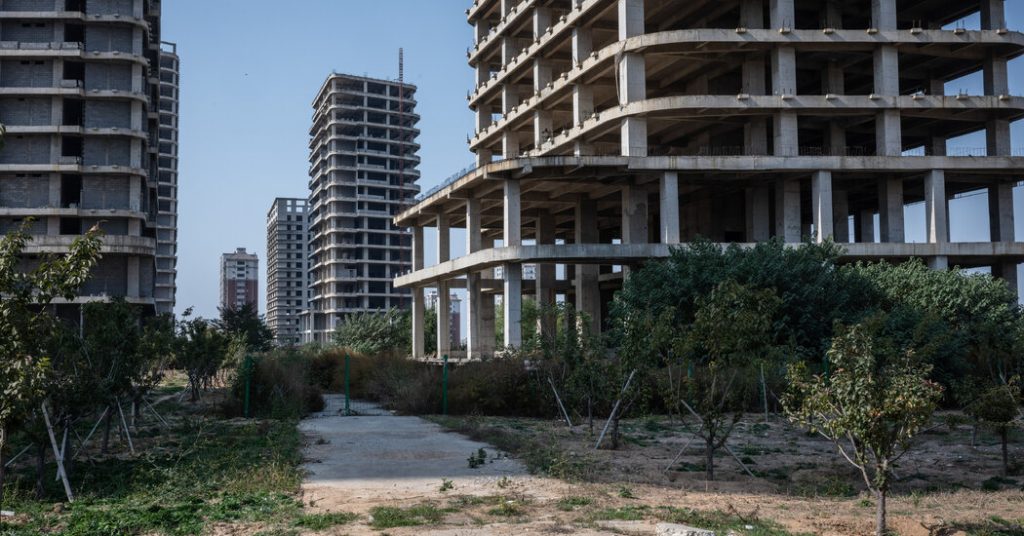China is currently facing a significant housing crisis, with nearly four million apartments sitting empty and unsold. In response, President Xi Jinping and his government have announced a plan for the government to purchase these unwanted properties. However, this plan is just the beginning of addressing the larger issues within China’s real estate market. In addition to the empty apartments, there are also an estimated 10 million unfinished apartments being built by developers who have overextended themselves. This crisis has created a downturn that is challenging the country’s economic growth, and experts believe that addressing the empty apartments is crucial to transitioning to more sustainable growth.
For decades, China promoted and allowed a massive real estate boom to become a significant driver of economic growth, but in 2020, the government made moves to slow down the easy money that fueled this expansion. As a result, dozens of big developers have gone bankrupt, eroding confidence in the housing market. With few buyers and remaining developers on the brink of default, the real estate sector’s massive borrowings, estimated at over $10 trillion, are creating further challenges for China’s financial system. The government has tried various measures to restore buyer confidence, but the market continues to struggle, with experts warning of the risks of more developers going bankrupt.
The initial default of China Evergrande in December 2021 raised fears of a potential financial crisis similar to the collapse of Lehman Brothers in 2008. However, the fallout from Evergrande’s default was managed through policy support, allowing the company to finish building many apartments before being ordered to liquidate. Despite this, other smaller developers across the country remain at risk, and officials are now considering the possibility of bailing out midsize developers to stabilize the market. The government has pledged funds to help fund loans for state-owned companies to purchase unsold properties and turn them into social housing at lower rents, but critics question the timing and funding of this initiative.
Beijing began softening its approach in 2021 by directing banks to provide funding to selected real estate companies, but these efforts did not prevent housing prices from falling. A series of measures aimed at increasing sales and supporting real estate companies were implemented by local authorities, but the number of unsold homes continued to rise, and prices continued to decline. The government’s recent decision to start buying unsold apartments demonstrates the severity of the housing market’s dysfunctions. While the move has sparked questions and concerns about its feasibility and cost, the political will behind the plan may pressure officials to take action.
Despite the challenges and uncertainties surrounding the government’s plan to buy unsold apartments, there is cautious optimism that Beijing is moving in the right direction to address the housing crisis. Analysts believe that more drastic measures may be necessary to tackle the vast scale of the issue, and patience will be required as the government navigates the complexities of the real estate market. While political pressure may incentivize local governments to purchase unsold apartments at a loss, the effectiveness of these efforts in cities with shrinking populations remains to be seen. Overall, the task of resolving China’s housing crisis is daunting, but with continued government intervention, there is hope for progress in addressing the root causes of the problem.


